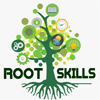M3 D-804, Miraya, Anandam World City, Near GAD Colony, Kachna, Raipur (C.G.) – 492001
E-Waste & Plastic Waste EPR Conference 2022
E-Waste & Plastic Waste EPR Conference 2022
Radisson Blu, Mumbai International Airport, MUMBAI
About the Conference
SHOCKERS OF PLASTIC WASTE
- Only 20 companies are responsible for producing more than half of single use plastic waste globally
- All the leading brands are associated with production of plastic waste
- More than half the 9.2 billion tons of plastic that has been produced up to now
- In INDIA, Plastic waste is estimated to be over 50 million metric tons per year in the year 2041
- Average per capita consumption of plastic in India is about 20 kgs in 2022.
SHOCKERS OF PLASTIC WASTE
- Consumers discarded 53.6 million tonnes worth of electronics in 2019, globally up 20 percent in 5 years. But only 17.4 percent was recycled sustainably
- India generates about 3 million tonnes (MT) of e-waste annually and ranks third among e-waste producing countries, after China and the United States
- Reports state that it might rise to 7 million tonnes by 2022
- With COVID-19 keeping people indoors and on devices, the usage of electronics is only getting higher
Why Electronic Waste needs recycling?
manufacturing and recycling is to build effective reuse methods. This is also vital because the key elements in most electronics – rare earth metals – aren’t exactly rare as their name suggests, but are definitely hard to obtain, at least locally
What This Conference Has to offer?
EXTENDED PRODUCERS RESPONSIBILITY (EPR) ensures the best possible solutions available for such waste and stopping them from entering into landfill / waterways.
3rd segment of our EPR conference has added electronic waste as well. This conference will focus on the brand owner’s perspectives to the plastic recycling, sustainability & ground level applications of various methods used by brand owners and solution providers.
The conference will cover beyond EPR strategies, EPR compliance, Govt. interventions, regulations by the Govt and many more thrilling topics. Along with the brand owners, there will be all stakeholders of the EPR segment in Plastic waste management.
Recycling is one of the most important actions available to reduce the impacts of plastic on the environment. It provides opportunities to reduce oil usage, carbon dioxide emissions and the quantities of waste requiring disposal.
ITS EPR will continue to provide a platform where all brand owners and plastic recyclers can meet and bring the solutions with regards to the plastic waste management.
08:00 – 09:15 AM
09:15 – 09:35 AM
09:35 – 09:45 AM
09:45 – 11:15 AM – Panel Discussion
E-waste Recycling-Markets, Challenges & Solutions for end processing
11:15 – 11:35 AM – Networking Tea Break
11:35 AM – 12:20 PM – Key Address Note
12:20 – 01:00 PM – Presentation
01:00 – 01:40 PM – Presentation
01:40 – 03:00 PM – Networking Lunch Break
03:00 – 04:30 PM – Panel Discussion
Responsible E-waste Recycling in Markets – A Commercial viewpoint
04:30 – 06:00 PM – Panel Discussion
Building momentum for creating demand for reused and recycled materials
End of Day 1
09:15 – 09:15 AM
09:15 – 10:00 AM – Key Note Address
10:00 – 11:15 AM – Panel Discussion
The circular plastic partnership: Implementing 2030 roadmap
11:15 – 11:35 AM – Networking Tea Break
12:50 – 01:30 PM – Presentation
01:40 – 03:00 PM – Networking Lunch Break
03:00 – 04:30 PM – Panel Discussion
Responsible E-waste Recycling in emerging markets – A Commercial opportunity
04:30 – 06:00 PM – Panel Discussion
Latest insights on the overview of plastic waste statics management, legislation and outlook to 2005
06:00 – 07:00 PM – Closing Remark by Organization
End of Conference
Coming soon
Partners






DELEGATE FEE (PER DELEGATE)
Early Bird Fee
- INR 1000 + GST
- USD 30
Standard Fee
- INR 2999 + GST
- USD 50
Spot Fee
- INR 4999 + GST
- USD 100



